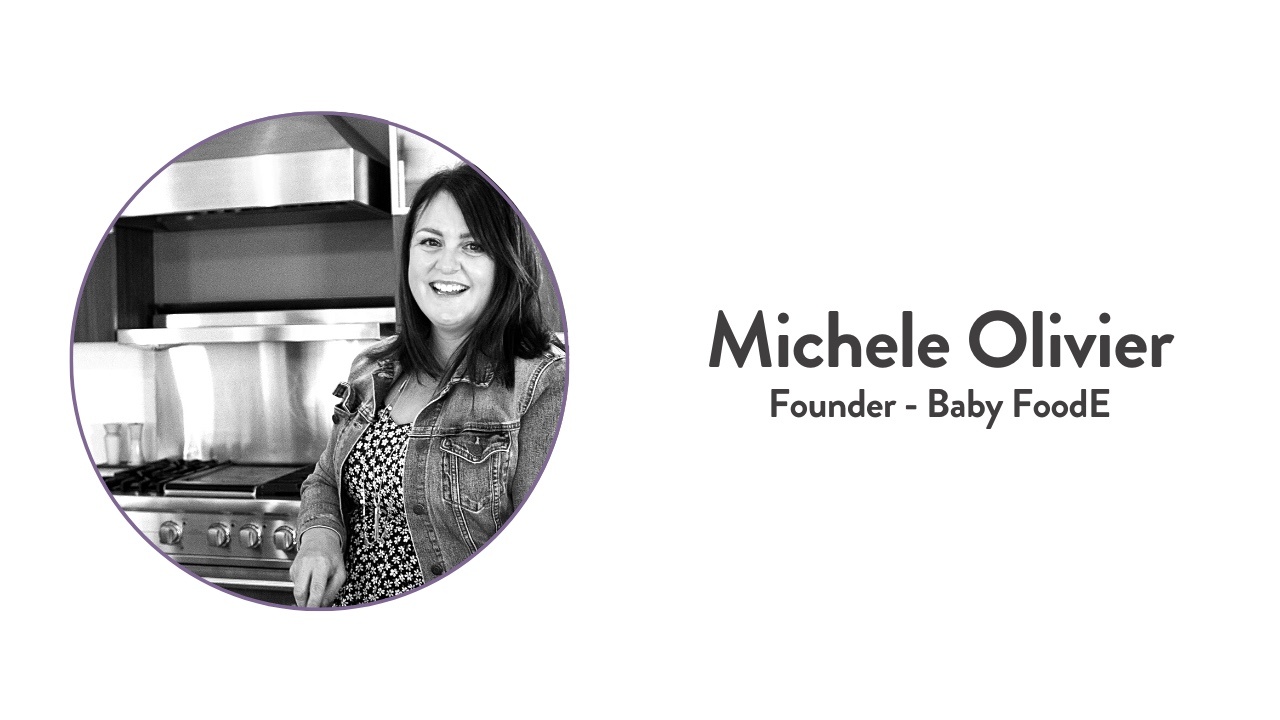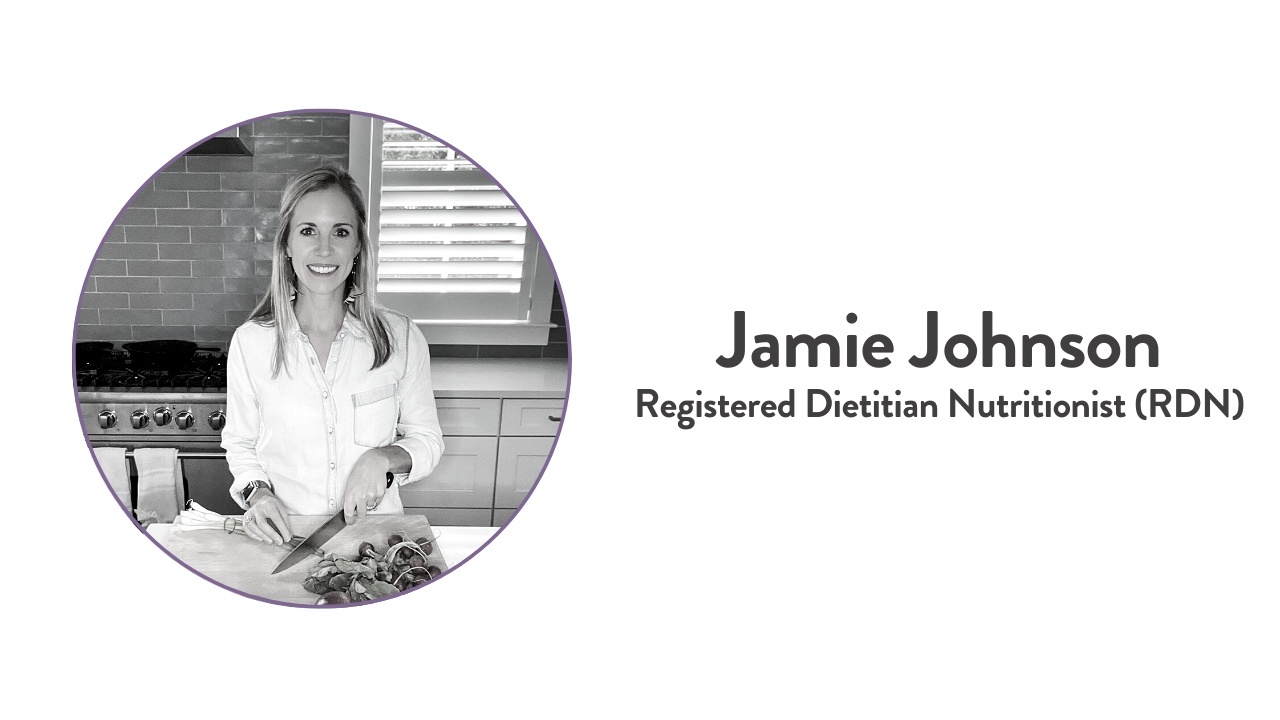Nutritional Information
Blueberries are touted as a superfood because of all of the nutrients they contain and have been associated with numerous health benefits, including reducing the risk of cancer, heart disease and diabetes.
- High in vitamin C, which is necessary for proper immune function and iron absorption
- High in vitamin K, which is important for blood clotting for when baby gets a boo boo
- Fiber for digestion and gut health
- Antioxidants for cancer prevention
Blueberry Tip: Frozen blueberries are great to have on hand, especially when blueberries aren’t in season. Frozen produce is picked and frozen at the peak of freshness and locks in nutrients, which can make them more nutritious than buying fresh.
When can you introduce blueberries to your baby?
Are blueberries a choking hazard?
Are blueberries a common allergen?
Do blueberries cause constipation for babies?
How to Serve Blueberries
You can serve fresh or frozen blueberries in a variety of ways, including stirred into oatmeal or yogurt, in baked goods, or on their own, smashed or cut in halves or quarters. Smashing or cutting uncooked blueberries reduces their choking risk; however, it can also make it more challenging to pick up smaller pieces of food until your baby is closer to 9 months of age.
6+ Months
See below for these recipes.
Puree
Self-Feeding: Baby-Led Weaning
- Blueberries for Baby-Led Weaning: flattened or as a puree
7+ Months
Stage Two Purees
9+ Months
Stage Three Purees
Self-Feeding: Finger Foods
- Blueberries for Self-Feeding: Flattened, cut in half or quarters, or as a puree
12-36 Months
Toddler Recipes
Recipes
Roasted Blueberry Puree
Prep Time: 5 minutes
Cook Time: 20 minutes
Servings: 6-8 ounces
Age: 6+ months
Ingredients
- 2 cups blueberries
- pinch cinnamon (optional)
Instructions
-
Preheat oven to 425° F. Line a baking sheet with parchment paper. Place the blueberries on the baking sheet and sprinkle on cinnamon. Bake for 20 minutes or until soft and bursting with juices.
- Let cool slightly and then transfer the blueberries to a blender or food processor and puree for 1-2 minutes until smooth.
Notes
Age: 6+ months
Storage: you can store the purees in the fridge for up to 4 days or in the freezer for 4 months.
Yield: 8 ounces
Notes on Frozen Blueberries: if you are using frozen blueberries, make sure you thaw and drain any excess liquid before using them unless indicated in the recipe card.
Blueberries for Self Feeding
Blueberries are a good food for your baby to self-feed, whether for baby-led weaning, which happens around 6 months of age, or during the finger foods stage at 9 months.
6+ months - flattened or puree: Flatten blueberries between your fingers to change the round shape and reduce the choking risk. Babies this age may still not be able to pick them up very well because their pincer grasp hasn’t fully developed, so you can also try serving them in yogurt or warm cereals. You can offer purees and still allow your baby to lead the way with self-feeding by placing some spoonfuls directly on your baby's tray or bowl to let them explore on their own, or you can hand them a pre-loaded self-feeding spoon.
9-12 months - halved or quartered: Half or quarter blueberries, especially larger ones, to reduce the choking risk. Offering blueberries this way is great practice for developing baby’s pincer grasp. You can also continue to offer them flattened.
12-24 months - halved, quartered, or whole: Toddlers may be ready to try a whole blueberry around this age, if they are chewing well and not overstuffing their mouth. Always supervise and remember you can continue to offer cut or smashed blueberries as needed, depending on your child’s skill level.
Prep Time: 2 minutes
Cook Time: 0 minutes
Servings: 1-2 servings
Age: 6+ months
Ingredients
- 2-3 tbsp fresh blueberries
- pinch of cinnamon
Instructions
-
Serve to baby flattened, halved or quartered, depending on your baby's age.
- You can add a pinch of cinnamon to the tops of the blueberries.
Notes
Age: 6+ months
Yield: 1 serving
Puree for Self-Feeding: Yes, it can be done! You can offer purees and still allow your baby to lead the way with self-feeding.
- Place a few spoonfuls of purees directly on the tray or in a bowl for your baby to dip fingers into. Model how to dip your fingers into the puree and bring them to your mouth, to taste some.
- Offer your baby a pre-loaded self-feeding utensil and hold it out for them to grasp or set on their tray.
- Use a solid food as a dipper. You can also offer a soft stick-shaped piece of food, such as a soft roasted carrot or bread lightly toasted and cut into strips to dip into the puree.
Video
Feeding Tips
- Frozen blueberries can be zapped in the microwave for 30 seconds to make them mushy and less of a choking hazard.
- If using frozen blueberries, know they produce a lot of juice when thawed and can stain baby’s hands and mouth
- Wash blueberries well before serving, as berries are high on the list of fruits grown with the most pesticides.
More Blueberry Recipes
How to Pick & Store Blueberries
How to Pick Blueberries
- Size: Choose blueberries that are uniform in size
- Color: Look for berries that are a deep purple to almost black in color. A silvery coating (also called a “bloom”) is normal to see on blueberries.
- Firmness: You want blueberries that are smooth, firm, and dry. Avoid those with stains on the container as this can indicate bruised or broken fruit.
How to Store Blueberries
- Store blueberries in the fridge as soon as you get home. It’s best to store them in the main part of your fridge, instead of the crisper drawer, as this allows for better air circulation.
- Don’t store berries in an airtight container, as this traps moisture and can lead to mold growth and rotting.
- Wait to wash your blueberries until you are ready to eat them. Put the amount you need in a strainer and rinse under cold water. Gently dry with a paper towel.
- Blueberries can last up to 2 weeks in the fridge and about 6 months in the freezer.
Seasonings that pair well with blueberries:
- Cardamom
- Cinnamon
- Nutmeg
- Allspice
- Clove
- Ginger
- Lemon
- Mint
- Vanilla
Blueberry Facts
-
North American indigenous peoples called blueberries “star fruits” due to the five-pointed star shape that’s formed at the blossom end of the blueberry.
-
Blueberries truly are a powerful little fruit. They rank #1 in antioxidant health benefits in comparison with more than 40 other fresh fruits and veggies.
-
Blueberries are also unique in that they are the only fruit that’s naturally blue in color, due to their pigment called anthocyanin. Anthocyanin is rich in antioxidants and is thought to be anti-inflammatory and immune boosting.
Reviewed and Co-Written By












